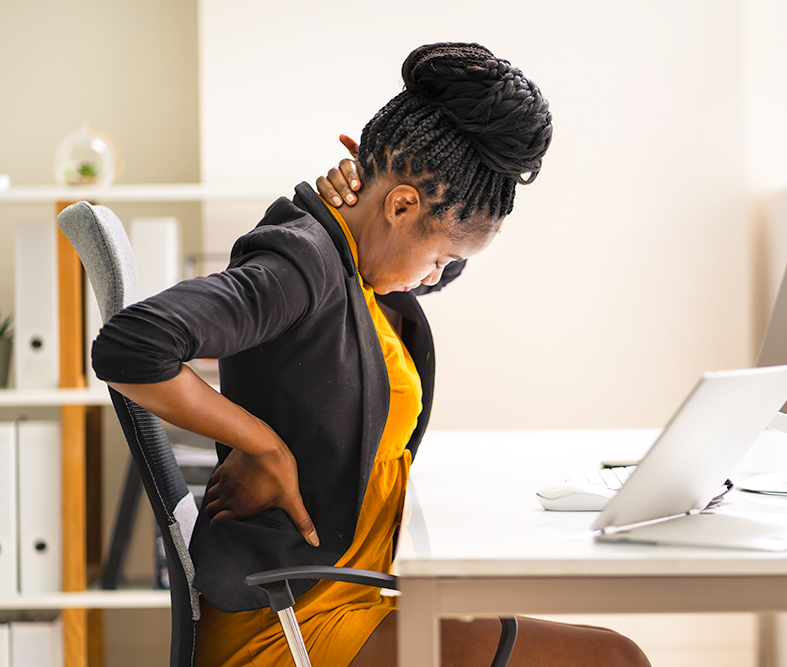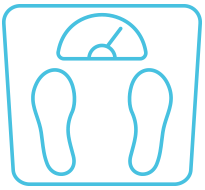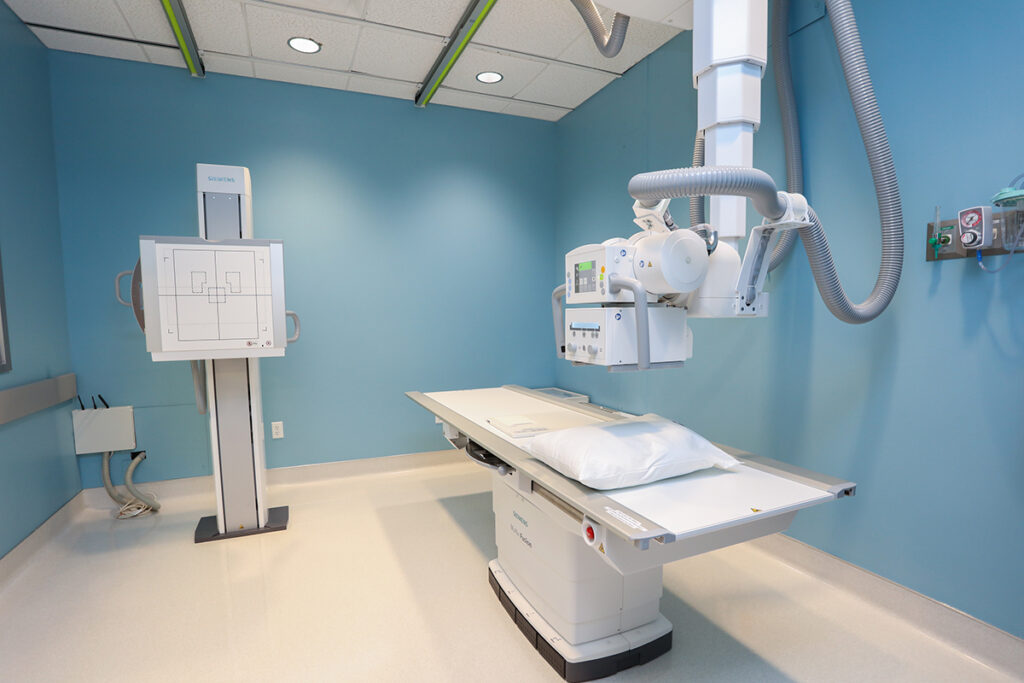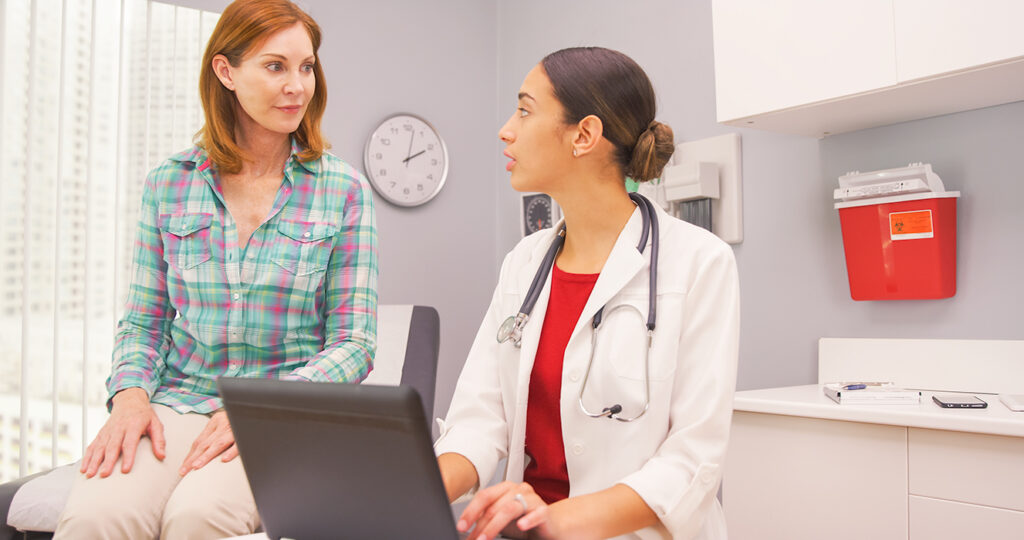Back pain stands as the leading cause of disability worldwide, keeping millions of people from participating in work and other everyday activities. It is so common in the U.S. that 8 in 10 Americans will experience it at some point in their lifetimes, and 5% of people who struggle with it once will likely develop chronic back pain. While back pain is a common condition, it sometimes requires emergency medical attention, so it’s important to be aware of those scenarios.

Types of back pain
The back is a complex structure of bones, joints, muscles and ligaments. With so many parts and pieces involved in spinal movement, back pain differs in intensity and manageability from person to person. Back pain can feel like shooting pain, muscle aches or spasms, burning, or it could radiate to other parts of the body. Pain may be constant or it can be aggravated by movement like twisting, bending, sitting, walking or standing. This pain can also go away as quickly as it comes on, only to return weeks later.
Because back pain sensations and intensity vary so widely from person to person, it is often difficult to diagnose the exact cause. Frequent causes of back pain include:
Muscle or ligament strain
Muscle or ligament strains may be caused by injury or accidents, but more commonly they’re brought on by heavy lifting or even the smallest of awkward movements.
Ruptured discs
Discs are cushions of cartilage between the bones of the spine. When one of these discs bulges out, it can rupture and put pressure on a nerve, sometimes causing pain. discs ruptures may also cause no pain at all.

Being overweight
The spine is under a tremendous amount of pressure throughout daily movement. Carrying excess weight on your body only increases that pressure and likelihood of back pain or injury.
Osteoarthritis
Osteoarthritis is the most common form of spinal arthritis. It normally manifests in the lower back as the cartilage between spinal joints breaks down, leading to wear and tear, inflammation and pain.
Osteoporosis
With osteoporosis, vertebrae in the spine become porous and brittle, which can lead to painful breaks.
Other health conditions
Other health conditions such as kidney stones, kidney infections, blood clots or bone loss can be direct causes of back pain.
Back pain: ER or urgent care?
The first decision you should consider to address your back pain is where you should seek medical care: your primary doctor, urgent care facility, or ER. If your back pain is tolerable and not causing any severe symptoms, it may be safe to wait for your primary care doctor to see you when the next appointment is available. It’s important not to wait too long to treat back pain symptoms since they can transform into chronic pain if ignored.
Some back pain symptoms may not need immediate treatment on the same day they start, but they may still need medical assessment as early as possible. Urgent care centers’ operating hours vary but are often longer than typical doctors’ offices, ranging from 7:00 am to 9:00 pm. If your doctor or specialist doesn’t have an available appointment within one week, visiting an urgent care is the next best option to evaluate symptoms like:
- Recent increase in back pain that does not go away with over-the-counter medications
- Back pain associated with vomiting and/or nausea
- Severe back pain that accompanies specific movements like coughing or sneezing, bending forward or backward, or twisting
- Back pain that radiates down the hip or legs
- Recent onset of back stiffness
Urgent care facilities sometimes have imaging equipment for X-rays, but they aren’t nearly as thoroughly equipped as ER’s for a complete evaluation and diagnosis for back pain. The physicians at an urgent care clinic will still be able to identify any hidden red-flag symptoms, prescribe medication to alleviate pain in the short-term, and offer other referrals and guidance for further treatment.

Going to the ER is best when back pain is the result of trauma, serious injury or serious health conditions, or when the symptoms are severe to the point of life-threatening. In situations like these, thorough medical evaluation and treatment is needed immediately regardless of the time of day or day of the week. ER’s like Neighbors Emergency Centers are open 24/7/365 and fully equipped with imaging and laboratory equipment to ensure comprehensive care for any back pain.
When to go to the ER for back pain
While most back pain gets better with time and rest, it should never be ignored. If experiencing any of the following symptoms in association with back pain, have a friend or family member drive you to the ER immediately, or dial 911 for assistance:
- Back pain following a trauma like a fall, car accident or sports injury
- Sudden intolerable pain in the lower back and/or legs
- Sudden numbness or loss of sensation in one or both legs, the groin and genital area
- Inability to stand or walk
- Inability to control bowel movements
- Difficulty passing urine
- Loss of consciousness
- Sudden back pain with known risk factors for a fracture, like osteoporosis

Emergency room treatment for back pain
When you arrive at the emergency room, you will first meet a nurse who will interview you about your symptoms to determine the severity of your back pain. After your health history and symptom information is gathered, the ER physician will perform a physical exam assessing your function and range of motion. The physician may also request additional tests such as X-ray, CT scan, lab tests, or others to get the clearest picture for your back pain diagnosis. ER’s like NEC have state-of-the-art imaging technology available to help diagnose causes of back pain.
After you’ve been evaluated, the physician may prescribe lower-level pain medications or muscle relaxers. For more extreme cases of back pain, stronger prescription pain medications like opioids and benzodiazepines may be recommended. Emergency rooms serve to help stabilize your back pain, but they do not offer long-term treatment. Since ER physicians are not usually specialized in musculoskeletal injuries or pain management, they will refer you to your primary care doctor or an orthopedic specialist for follow-up evaluation and treatment.
Head to your nearest Neighbors for back pain emergencies
All Neighbors Emergency Center locations are ready to provide you with the highest quality emergency care for any back pain emergencies 24/7/365.

